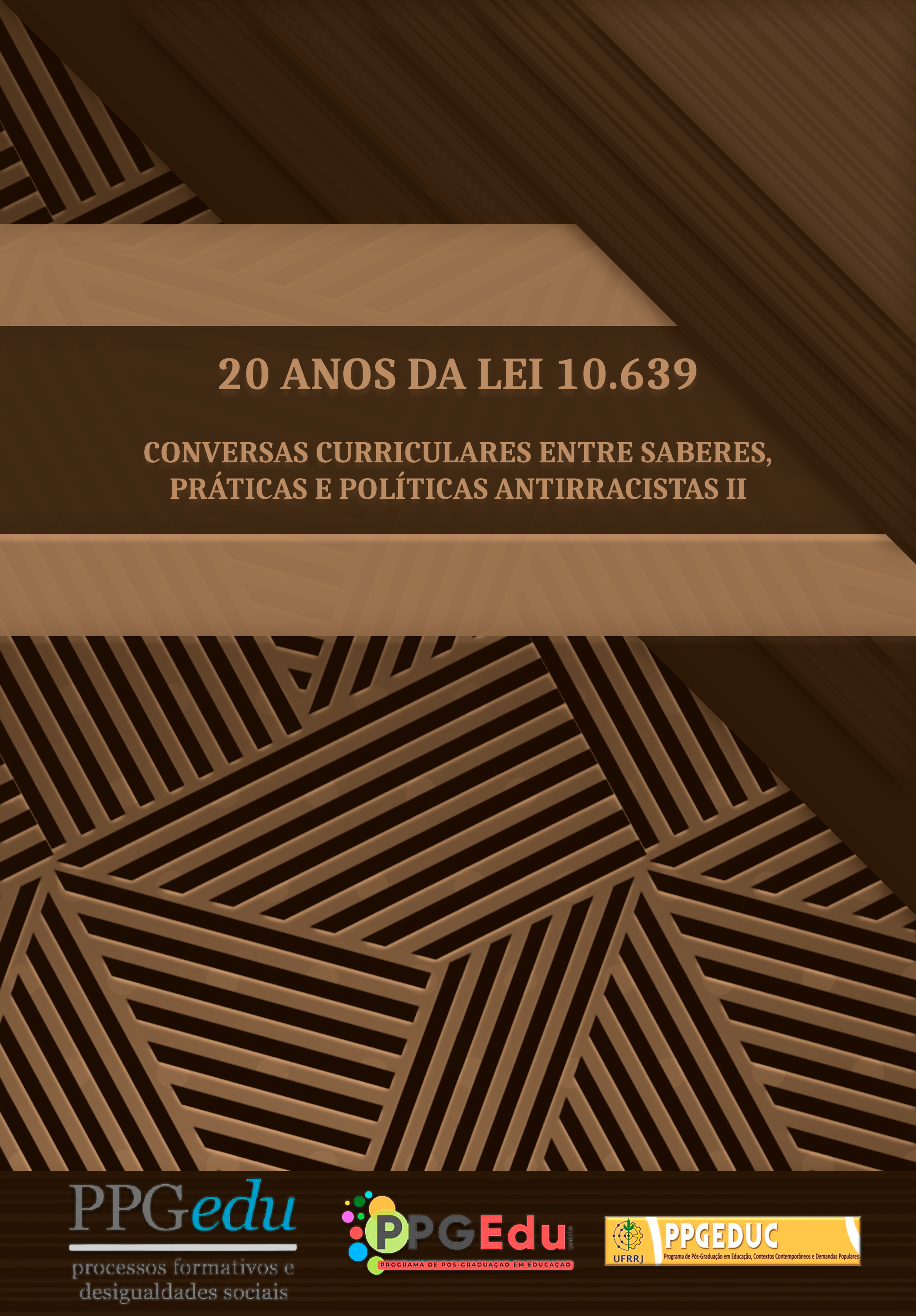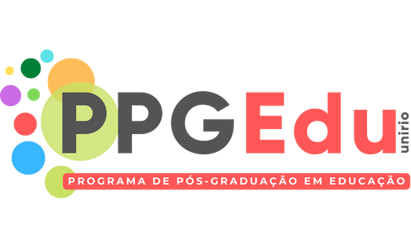The article discusses the initial training of the Pedagogue at the State University of Londrina – UEL and the Education of Ethnic-Racial Relations (ERER). The study is based on the following question: how has the Pedagogy course at the State University of Londrina addressed this topic in its curriculum? Are the National Curricular Guidelines for the Teaching of African and Afro-Brazilian History and Culture and for the Education of Ethnic-Racial Relations (DCNERER) being included in the subjects? The general objective is to analyze the curriculum of the UEL Pedagogy course in the years 2010, 2017 and 2019 and the perspectives attributed to the Education of Ethnic-racial Relations and the Teaching of Afro-Brazilian and African History and Culture. To achieve the objectives, we opted for bibliographic and documentary research. The Pedagogical Project, subjects and course contents were proven. Studies show that the Pedagogy course provides little support for
DOI:
https://doi.org/10.12957/riae.2024.73809Keywords:
Teacher training, Ethnic-racial relations, Curriculum, PedagogyAbstract
The article discusses the initial training of the Pedagogue at the State University of
Londrina – UEL and the Education of Ethnic-Racial Relations (ERER). The study is based
on the following question: how has the Pedagogy course at the State University of Londrina
addressed this topic in its curriculum? Are the National Curricular Guidelines for the
Teaching of African and Afro-Brazilian History and Culture and for the Education of
Ethnic-Racial Relations (DCNERER) being included in the subjects? The general objective
is to analyze the curriculum of the UEL Pedagogy course in the years 2010, 2017 and 2019
and the perspectives attributed to the Education of Ethnic-racial Relations and the Teaching
of Afro-Brazilian and African History and Culture. To achieve the objectives, we opted for
bibliographic and documentary research. The Pedagogical Project, subjects and course
contents were proven. Studies show that the Pedagogy course provides little support for work with the Education of Ethnic-racial Relations, contrary to what is foreseen in the
DCNERER
References
ARAUJO, L. F. A Lei 10.639/2003 e sua maior idade. Há o que se comemorar? Revista
Docência Cibercultura, Rio de Janeiro. v. 5, n. 2, p. 279-294, maio/ago 2021.
BRASIL. Conselho Nacional de Educação/Conselho Pleno (CNE/CP). Parecer n° 2.167. Diretrizes Curriculares Nacionais para a Formação Inicial de Professores para a Educação Básica e Base Nacional Comum para a Formação Inicial de Professores da Educação Básica (BNC-Formação). Diário Oficial da União: Seção 1, Brasília, DF, p. 142, 20 de dezembro de 2019.
______. Conselho Nacional de Educação. Parecer CNE/CP 009/2001, de 8 de maio de 2001.
______. Conselho Nacional de Educação. Resolução CNE/CP no 01, de 17 de junho de 2004. Diário Oficial da União, Brasília, DF, 22 jun. 2004. Seção 1, p. 11.
______. Conselho Nacional de Educação. Resolução CNE/CP No 1/2006, de 15 de maio de 2006. Diário Oficial da União, Brasília, DF, 16 de maio de 2006. Secado 1, p. 11.
______. Constituição (1988). Constituição da República Federativa do Brasil. Brasília, DF: Senado Federal: Centro Gráfico, 1988.
______. Governo Federal. Lei n. 9.394 de 20 de dezembro de 1996. Diário Oficial da União, Brasília, DF, 23
dez. 1994. Seção 1, p. 27.833.
______. Governo Federal. Lei n°10.639 de 09 de janeiro de 2003. Diário Oficial da União, Brasília, DF, 10 jan. 2003. Seção 1, p. 1.
______. Governo Federal. Lei n°13.005, de 25 de junho de 2014. Diário Oficial da União, Brasilia, DF, 26 jun. 2014, Seção 1. Disponível em: http://www.planalto.gov.br/ccivil_03/_ato2011-2014/2014/lei/l13005.htm . Acesso em: 20 fev. 2023.
_______. Ministério da Educação. Diretrizes Curriculares Nacionais para a Educação das Relações Étnico-Raciais e para o Ensino de História e Cultura Afro-Brasileira e Africana. In: ______. Diretrizes Curriculares Nacionais Gerais da Educação Básica. Brasília-DF: Secretaria de Educação Básica/Diretoria de Currículos e Educação Integral, 2009.
______. Plano Nacional de Educação 2014-2024. Brasília: Edições Câmara, 2015
CARDOSO, L. Branquitude acrítica e crítica: a supremacia racial e o branco antirracista. Revista Latinoamericana de Ciencias Sociales, Niñez y Juventud, Manizales. v.8. n. 1. p.607-630, ene./jun. 2010
CAVALLEIRO, E. S. Identificando o racismo, o preconceito e a discriminação racial na escola. In: LIMA, I.C.; ROMÃO, S.; SILVEIRA, S.M. (Org.). Os negros e a escola brasileira. Florianópolis: NEN – Núcleo de Estudos Negros, n.6.1999.
CRUZ, A.M.V. NASCIMENTO, R.N.F. As leis 10639/03 e 11645/08: perspectivas e debates
no campo da Antropologia da Educação. Vozes, Pretérito & Devir, Universidade Federal ́
do Piauí. v.11, n.2, p.218-236, 2020.
GOMES, M. M.; GOMES, F. das C; ARAUJO NETO, B. B. de; MOURA, N. D. de S.; MELO, S. R. de A.; ARAUJO, S. F. de; NASCIMENTO, A. K. do; MORAIS, L. M. D. de. Reflexões sobre a formação de professores: características, histórico e perspectivas. Revista Educação Pública, v. 19, n. 15, 6 ago. 2019. Disponível em: https://educacaopublica.cecierj.edu.br/artigos/19/15/reflexoes-sobre-a-formacao-de- professores-caracteristicas-historico-e-perspectivas. Acesso em: 10 dez. 2022.
GOMES, N. L. Educação e relações raciais: refletindo sobre algumas estratégias de atuação. In: MUNANGA, Kabengele (Org.). Superando o racismo na escola. Brasília, DF: MEC, 2005. p.143-154.
______. Relações étnico-raciais, educação e descolonização dos currículos. Currículo sem Fronteiras. Minas Gerais, v.12, n.1, p. 98-109, jan./abr. 2012.
GOMES, N. L.; JESUS, R. E. As práticas pedagógicas de trabalho com relações étnico-raciais na escola na perspectiva da Lei 10.639/2003: desafios para a política educacional e indagações para a pesquisa. Educar em Revista. Curitiba, no 47, p. 19-33, jan/mar, 2013.
GONÇALVES, R. J. A superioridade racial em Immanuel Kant: as justificações da dominação europeia e suas implicações na América Latina.Kínesis, v.7, n.13, p.179-195, jul. 2015.
LÜDKE, M.; ANDRÉ, M.E.D.A. Pesquisa em educação: abordagens qualitativas. São Paulo: EPU, 1986.
MUNANGA, K. Superando o racismo na escola. Brasília: MEC/SECAD, 2005.
NOGUEIRA, A. M. A Implementação da Lei nº 10.639/03 em cursos de formação de professores: o discuros institucional da UFMG. 2017. 18p. Dissertação (Mestrado em Educação)-Universidade Federal de Minas Gerais, Belo Horizonte, 2017.
NONATO, G. A. Formação inicial de professores para a diversidade étnico-racial nas licenciaturas em letras e pedagogia em duas IES mineiras. 2018. 182f. Dissertação (Mestrado em Educação)-Pontifícia Universidade Católica de Minas Gerais, Belo Horizonte, 2018.
RIZZO, J. G. de S. A formação inicial de professores e as implicações para a educação das relações etnicorraciais nos cursos de Pedagogia de MS. 2018. 172 f. Dissertação (Mestrado em Educação)-Universidade Federal da Grande Dourados, Dourados, 2018.
RODRIGUES, T C.; OLIVEIRA, F. Li de SANTOS, F. da S. Desafios da Implementação da Lei n° 10.639/03: um estudo de caso de municípios do Estado de São Paulo. Revista de Educação, PUC-Campinas, v.21, n.3, p.281-294, 2016. Disponível em: https://www.redalyc.org/journal/5720/572061643003/html/. Acesso em: 3 dez.2022.
UNICEF. O enfrentamento da exclusão escolar no Brasil: Campanha Nacional pelo Direito à Educação. Brasília, 2014.
UNIVERSIDADE ESTADUAL DE LONDRINA. Projeto Pedagógico do Curso de Pedagogia. Londrina, 2007.
______.Projeto Pedagógico do Curso de Pedagogia. Londrina, 2010.
______.Projeto Pedagógico do Curso de Pedagogia. Londrina, 2019
Published
How to Cite
Issue
Section
License
Copyright (c) 2024 Marleide Rodrigues da Silva Perrude, Gabriela Paula Santos, Simone Burioli

This work is licensed under a Creative Commons Attribution-NonCommercial 4.0 International License.
Authors retain copyright to their work, are permitted to publish and distribute their work online (e.g., in institutional repositories or on their personal page) at any point before or during the editorial process, as this may generate productive changes, as well as increasing the impact and citation of published work.
The acceptance of the text implies the authorization and exclusivity of the Revista Interinstitucional Artes de Educar regarding the right of first publication, the published works are simultaneously licensed with a Creative Commons Attribution-Non Commercial 4.0 International License 























